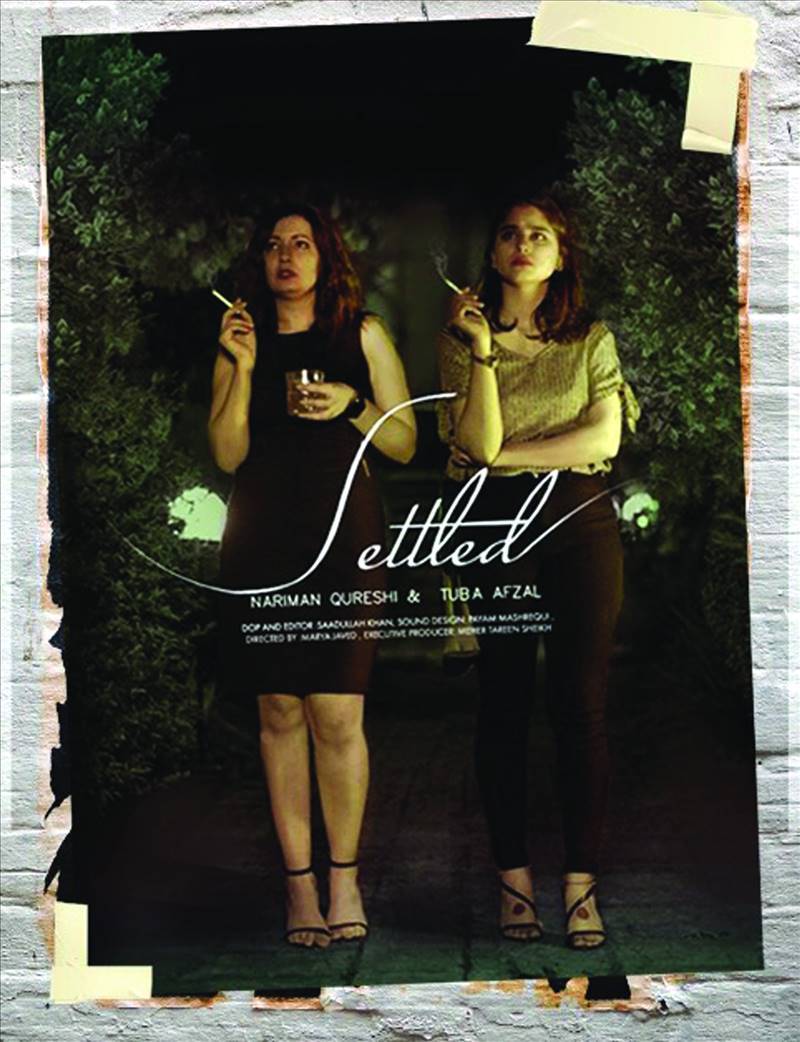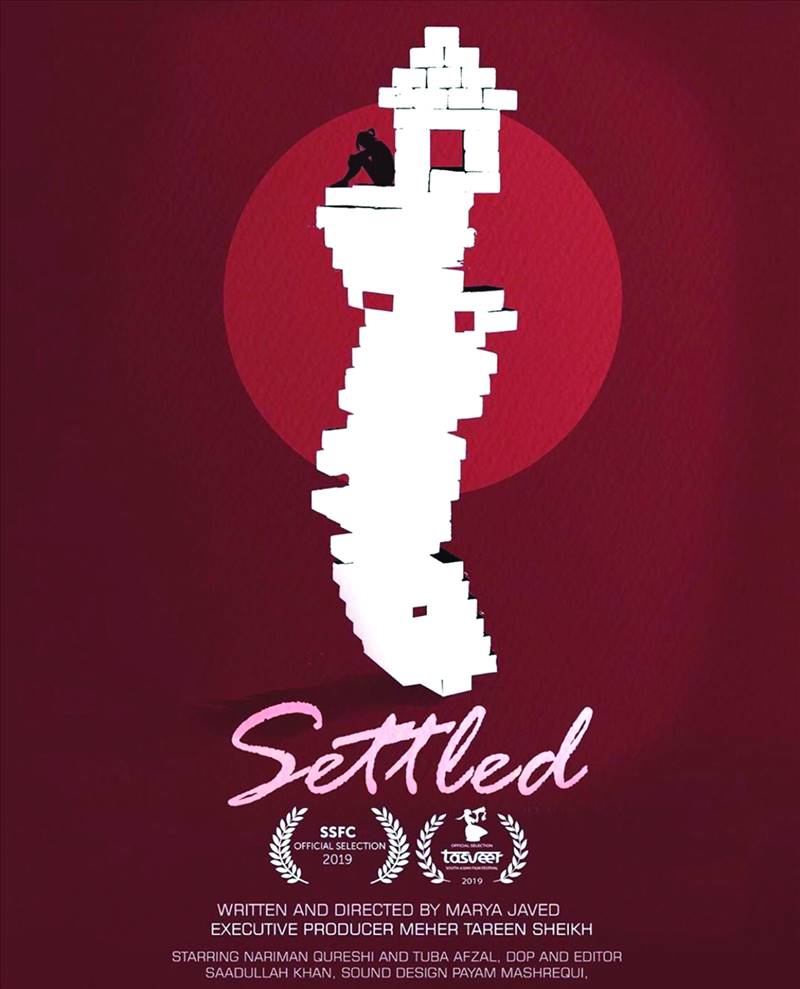
The other day I was at a semi-private viewing of a short movie titled “settled” that reflected on subtle nuances of the dysfunctional ties amongst couples in a marriage and it reminded me of a statement I had read earlier by a famous psychologist called John Gottman who said, “Our relationships do not die from one swift blow - they die from the thousand tiny cuts that precede it.”
The short film of about twenty-five minutes had very few dialogues but left a lot to ponder on as the patterns of behaviour shown resonated deeply. It is a feeling that we ask ourselves about, unknowingly, daily. And it is this: Why do we settle and stay in emotionally disconnected or dead relationships?
The film was followed up by a panel discussion that included the producer and director of the movie along with insightful psychologist Tanya Adam Khan. She explained a glaring detail and it was this: your current relationship rests on top of your childhood wound.
We mimic the same patterns established by our parents because we do not know any better. Whilst research shows that complacency in a relationship happens to almost 94% of couples, however this in of itself should not lead to a lack of communication. The brain goes into automation where relationship behavior amongst partners seems automated and that is where the complacency occurs. But if you catch it sooner it should not become a barrier for a relationship to thrive.
Easier said than done right?
Stan Tatkin points out in his TED talk titled Relationships are Hard, that “We are mostly misunderstanding each other much of the time, and if we assume our communication, memory and perception is the real truth, that is hubris.”

In Pakistan carving out meaningful deeper relationships is something of a niche – as the conditioning of males and females in a conservative society rests on the shoulders of elders and anything beyond is hushed up and shunned. Pakistan is a place where emotional intelligence, seeking couples’ therapy or sharing knowledge regarding intimate relations is still a novel idea. Someone expressing an interest in these matters tends to find themselves facing lots of raised eyebrows, making the person feel like an outcast.
Ultimately, much of our view of relationships is linked to the infamous archaic Subcontinental mind-boggling dialogue of “What will people say?”
This cultural mindset forces primarily the woman, followed by the man, to settle for less than they deserve and corrupts the male mindset even more to act dismissive and emotionless in a relationship. However with divorce rates going up and the world becoming a global village, can we now safely say that men and women do not want to settle for passionless marriages and break free from the shackles of society?
In my view this generation is facing and taking up the challenge of changing archaic mindsets head-on, as a result of which they are also in much more pain. It’s still a far cry from success - as our cultural mindset perpetuates marrying out of “duty” and often within a certain clan. But it is certainly being challenged even in Pakistan.
Leading international couples’ therapist Esther Perel says, “Divorce happens now not because we are unhappy, but because we could be happier.”
At the risk of oversimplification, we do not have all the answers for why humans behave the way they do but we can deduce the patterns that affect them. None of us are easy to live with and no one can really accept us wholeheartedly. But our approach towards marriage, human bonding and relationships can be better navigated - which will be much better than just “being settled” for generations to come.
A common theme that can be easily discerned from the short movie “settled” was the presence of emotionless couples, overbearing parents of both the sexes and a lack of boundaries in relationships – all of which the male and female actors were upholding at the cost of their relationship. The façade of remaining married was, in fact, making them depressed. Many people do not even realize that they have settled and when they do, it is too late. Tanya says that for you to know what you require out of a relationship, you need to have a self-aware persona and be fearless.
The perpetuation of outside validation promotes a vicious cycle of unhappy relationships. Jay Shetty, a renowned motivational speaker says that we live in a perception of a perception of ourselves – which means that we are basing our self-worth on perceptions of someone else’s subjective opinion. tr.viplviv.com This further amplifies the existing disconnect between two people, leaving little room to be vulnerable and show up better in relationships. Brené Brown, a New York Times #1 bestselling author, in her TED talk titled Call to Courage reminds us that vulnerability is the birthplace of love, belonging, joy, courage, empathy and creativity. And sometimes the bravest thing you can do in relationship is to just show up.
To be seen rather than plainly exist for the sake of settling out of societal pressure is the key for growth in any relationship. With changing times, the cultural expectations and mindsets need to change. The shame attached to walking out of a passionless unhealthy marriage needs to change, as does the idea of tolerating unhappy marriages or unions. Mothers need to raise better sons and not “made for marriage only” daughters.
Only when both parties meet in the middle can we have a possible shot at having happier, more fulfilling relationships.
The short film of about twenty-five minutes had very few dialogues but left a lot to ponder on as the patterns of behaviour shown resonated deeply. It is a feeling that we ask ourselves about, unknowingly, daily. And it is this: Why do we settle and stay in emotionally disconnected or dead relationships?
The film was followed up by a panel discussion that included the producer and director of the movie along with insightful psychologist Tanya Adam Khan. She explained a glaring detail and it was this: your current relationship rests on top of your childhood wound.
A common theme that can be easily discerned from the short movie “settled” was the presence of emotionless couples, overbearing parents of both the sexes and a lack of boundaries in relationships – all of which the male and female actors were upholding at the cost of their relationship
We mimic the same patterns established by our parents because we do not know any better. Whilst research shows that complacency in a relationship happens to almost 94% of couples, however this in of itself should not lead to a lack of communication. The brain goes into automation where relationship behavior amongst partners seems automated and that is where the complacency occurs. But if you catch it sooner it should not become a barrier for a relationship to thrive.
Easier said than done right?
Stan Tatkin points out in his TED talk titled Relationships are Hard, that “We are mostly misunderstanding each other much of the time, and if we assume our communication, memory and perception is the real truth, that is hubris.”

In Pakistan carving out meaningful deeper relationships is something of a niche – as the conditioning of males and females in a conservative society rests on the shoulders of elders and anything beyond is hushed up and shunned. Pakistan is a place where emotional intelligence, seeking couples’ therapy or sharing knowledge regarding intimate relations is still a novel idea. Someone expressing an interest in these matters tends to find themselves facing lots of raised eyebrows, making the person feel like an outcast.
Ultimately, much of our view of relationships is linked to the infamous archaic Subcontinental mind-boggling dialogue of “What will people say?”
This cultural mindset forces primarily the woman, followed by the man, to settle for less than they deserve and corrupts the male mindset even more to act dismissive and emotionless in a relationship. However with divorce rates going up and the world becoming a global village, can we now safely say that men and women do not want to settle for passionless marriages and break free from the shackles of society?
In my view this generation is facing and taking up the challenge of changing archaic mindsets head-on, as a result of which they are also in much more pain. It’s still a far cry from success - as our cultural mindset perpetuates marrying out of “duty” and often within a certain clan. But it is certainly being challenged even in Pakistan.
Leading international couples’ therapist Esther Perel says, “Divorce happens now not because we are unhappy, but because we could be happier.”
At the risk of oversimplification, we do not have all the answers for why humans behave the way they do but we can deduce the patterns that affect them. None of us are easy to live with and no one can really accept us wholeheartedly. But our approach towards marriage, human bonding and relationships can be better navigated - which will be much better than just “being settled” for generations to come.
A common theme that can be easily discerned from the short movie “settled” was the presence of emotionless couples, overbearing parents of both the sexes and a lack of boundaries in relationships – all of which the male and female actors were upholding at the cost of their relationship. The façade of remaining married was, in fact, making them depressed. Many people do not even realize that they have settled and when they do, it is too late. Tanya says that for you to know what you require out of a relationship, you need to have a self-aware persona and be fearless.
The perpetuation of outside validation promotes a vicious cycle of unhappy relationships. Jay Shetty, a renowned motivational speaker says that we live in a perception of a perception of ourselves – which means that we are basing our self-worth on perceptions of someone else’s subjective opinion. tr.viplviv.com This further amplifies the existing disconnect between two people, leaving little room to be vulnerable and show up better in relationships. Brené Brown, a New York Times #1 bestselling author, in her TED talk titled Call to Courage reminds us that vulnerability is the birthplace of love, belonging, joy, courage, empathy and creativity. And sometimes the bravest thing you can do in relationship is to just show up.
To be seen rather than plainly exist for the sake of settling out of societal pressure is the key for growth in any relationship. With changing times, the cultural expectations and mindsets need to change. The shame attached to walking out of a passionless unhealthy marriage needs to change, as does the idea of tolerating unhappy marriages or unions. Mothers need to raise better sons and not “made for marriage only” daughters.
Only when both parties meet in the middle can we have a possible shot at having happier, more fulfilling relationships.

